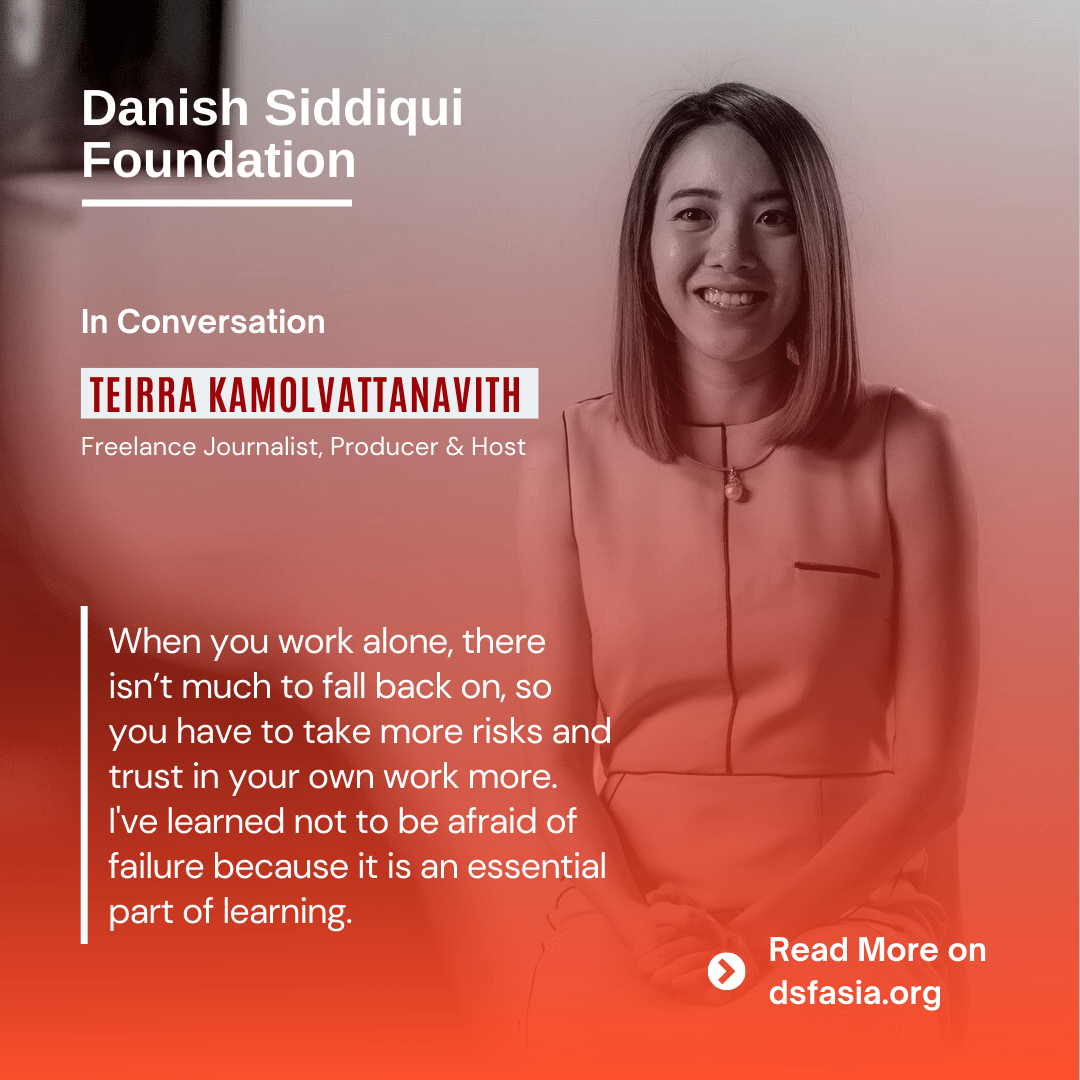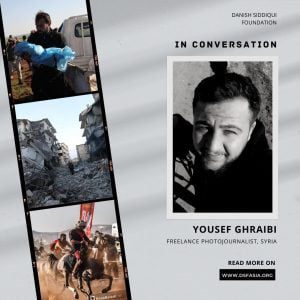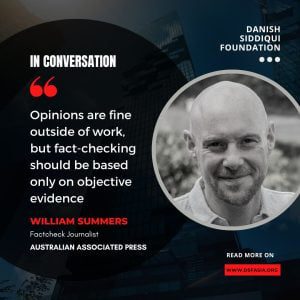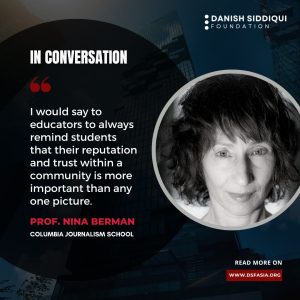
What inspired you to become a journalist?
I’ve always had a fascination with storytelling. I’ve always believed that it is a powerful tool to communicate and convey important messages. I’ve always believed in its power to open people’s eyes to things they’ve previously looked over or missed and challenge their perspective on them. From my early years up until college, however, I pursued a different form of storytelling: musical theater. I eventually moved to New York and entered the theater industry. After a few years, I felt quite disillusioned by my experience. I found myself articulating thoughts and ideas that weren’t my own — many of which I didn’t agree or identified with. Around the same time, I was consuming a lot more non-fiction content, including in-depth news reports and documentaries. Interested in exploring the field further, I got a job in a newsroom, and it changed my life. I realized the change I could affect through reporting and telling stories about real people and things going on in everyday life. More than ever before, I could shed light on the unseen or ignored. I felt I had finally found a storytelling medium that could make a real, long-lasting difference.
Why did you specifically choose investigative journalism?
When I started as a journalist, I primarily worked on daily news reporting, which was fast-paced with quick turn-around times. As someone who loves to go down rabbit holes and dive into the nitty, gritty details, I didn’t feel like I had enough time to do research, dig deep or develop relationships with my subjects. A few months into journalism, I got a tip about a yoga school on a Thai island allegedly abusing its students. After looking into it briefly, I realized that I had stumbled upon a huge, overlooked story. For many months after that, I conducted deep investigations and interviews; I was deep in the rabbit hole. The exposé that we ended up publishing, Being Broken: Years of sexual abuse alleged at Agama yoga school on Koh Phangan, continues to be one of my proudest journalistic accomplishments to date. We were able to pull the curtains back on injustices that’ve been going on for decades in our own country. After that story was published, I witnessed the impact our reporting made. Though the accused was never held accountable legally, the public was made aware of the dangers, and they were judged in the court of public opinion.
Which has been your most challenging story?
One of the most challenging stories I’ve worked on is one I’m currently working on about sexual abuse within Thai politics. Since the subject matter is extremely sensitive and many high-profile people are involved, it’s been tricky to navigate. We’ve had to tread carefully and consult legal teams often.
What are your most memorable stories?
Some of my most memorable stories include the Agama investigative piece, a podcast series I hosted about modern slavery across Asia, and the recent article about sexual abuse in Thail politics that I’m currently working on. In addition to these, when COVID started, we spoke to people in low-income communities and many NGOs about the situation and bought their stories forward. As a result, many of our readers donated to these NGOs and offered their support. It made me extremely happy and proud to see people coming together during a difficult time.
Why did you decide to become a full-time freelance journalist and producer?
I believe entrepreneurial journalism is the future of the industry. It gives you the freedom to choose stories you’re genuinely passionate about, be your boss and work on a wide range of different things.
You hosted the “Labor of Loss” podcast series and produced the Thailand episodes for Deutsche Welle’s (DW) HER – Women in Asia Show. What are these shows all about?
Labor of Loss was published last year. It is a podcast series that explores experiences of human trafficking and labor exploitation across Asia, taking listeners on a journey from a fishing fleet in South Korea to a palm oil plantation in Malaysia to a brick kiln in Cambodia. Guests – from trafficking survivors to frontline responders and legal rights advocates – will share their stories, debunk common misconceptions, and dive into a complex world of human exploitation – and hope.
HER portrays women’s lives from all spheres of Asian societies that are breaking stereotypes and voicing their opinions loud and clear. In each episode, three women give their perspectives on universal, existential, and crucial topics such as careers in male-dominated professions, mental health, addiction, and marriage.
While selecting projects, how do you balance your journalism interests and financial objectives as a freelancer?
I take whatever opportunity comes my way. I’m passionate about everything I work on. I don’t do anything that ethically goes against my morals.
How would you describe your freelancer experience till now? What are your key learnings?
I’m very happy as a freelancer. I also started my own creative agency/ production at the end of last year, and it’s been one of the most rewarding things I’ve ever done. My key learnings include time management, patience, an understanding of the nature of freelancing (that there’ll be months you’re busier than others and months you’ll be more available than others), and trusting one’s abilities. When you work alone, there isn’t much to fall back on, so you have to take more risks and trust your work more. I’ve learned not to be afraid of failure because it is an essential part of learning.
Disclaimer: The views and opinions expressed by those interviewed by the Danish Siddiqui Foundation, including all program participants, are solely their own current opinions regarding events and are based on their own perspectives and opinions. The views and opinions expressed do not necessarily reflect the views or opinions of the Danish Siddiqui Foundation, or the companies with which any program participants/interviewees are, or maybe, affiliated.




